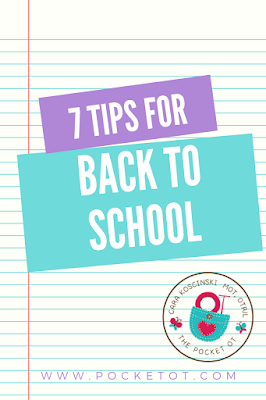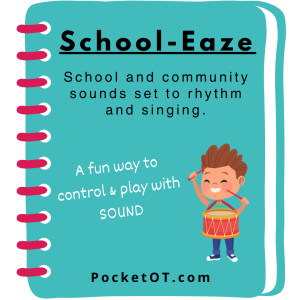
20 Snowman Crafts
Who wants to build a snowman? We do! This week we’ve rounded up some snowman crafts and activities. Each link contains a fun…

Back to school comes with mixed emotions. We want our children to have a super year as they grow and learn. As a parent of children with special needs, back to school brings both excitement and anxiety We purchase books, uniforms, shoes, and backpacks but wonder how our children will transition to a new class with increased expectations. We mustn’t forget about our child’s IEP and evaluation report. We might have created the ultimate IEP or 504 plan complete with awesome accommodations, but unless we read it and review it, we might forget that some extremely important preparations need to be made by the entire team (student, parents, teachers, therapists, etc.)
1) Let’s do it…..pull out your child’s educational plan and review it. Look at the status of your child after the months of summer break and evaluate which skills may have changed or even improved. Sometimes, the relaxation of summer can actually help kids to have time for more creativity. This can lead to advanced problem-solving. If you’ve engaged your child in social programs which he enjoys, he may have gained some great social skills. Remember to look at the positive along with the negative.
2) At this time of year, I prepare a list for my clients to assist in school readiness. It’s a good idea to ask teachers what colors the books for each subject will be. For example, what color is the math textbook? How about the English/Language Arts one? Then, try and match the book color with a folder and notebook of the same color. This is a great organizational trick.
3) Request an extra set of books for home use. This alleviates trying to remember what books need to be brought home at the end of the day. Additionally, it lightens the load of the backpack, which seems to get heavier every year!
4) Get hands ready for writing. Include putty or dough exercises to begin strengthening. Allow students to write grocery lists, and school supply lists, and practice writing short writing assignments about what fun things they have done over the summer. For students who will have keyboarding goals, begin to work on the computer to learn the correct placement on the home row.

5) Begin to transition kids to their school bedtime routine. Gradually ensure kids get to bed earlier weekly. Next, try to wake children up earlier and earlier. It’s not easy for anyone to jump into the school routine “cold turkey.”
6) Allow students to choose planners and backpacks that fit their personalities and interests. Doing this early and practicing packing and unpacking for school will make the transition easier. Also, try out new foods for lunch. (There’s a chapter full of suggestions for lunches and snacks which help with sensory regulation and attention in our new SCHOOL book.)
7) Review your child’s sensory needs and remind them of strategies chosen by the educational team. What do I do when I am accidentally bumped in the hallway? Who do I ask for help if I get lost or confused? How do I begin a conversation with someone who’s new or I want to be friends? Review who is gathering sensory accommodations such as fidgets, weighted lap pads, earplugs, standing desks, break cards, colored overlays, etc.
Our Special Needs SCHOOL Survival Guide was written for teachers, parents, therapists, homeschoolers, students, resource teachers, and everyone working in the school setting. There are chapters on autism, Sensory Processing Disorder, ADHD, learning disorders, dysgraphia, dyscalculia, dyslexia, handwriting, fine motor, transitions, and more. There are lists of resource charts with helpful websites for thousands of accommodations.
Also in our new book are charts and information for older students to help with goal setting, organization, and planning. In fact, many areas in the book are geared toward older students and those who are transitioning.
BONUS TIP: Finally, remind your student that he/she is wonderful and trying hard and failing at a task is OK. We learn from EVERY mistake and if we are patient with ourselves, have a good support system and keep on trying, we will eventually succeed. No disability, disorder, or special need defines them. They are children and students first. Bullying in any way is NOT to be tolerated. Outline the steps to take if children feel they’ve been bullied and ask the student to review them with you until you are certain they are understood.



